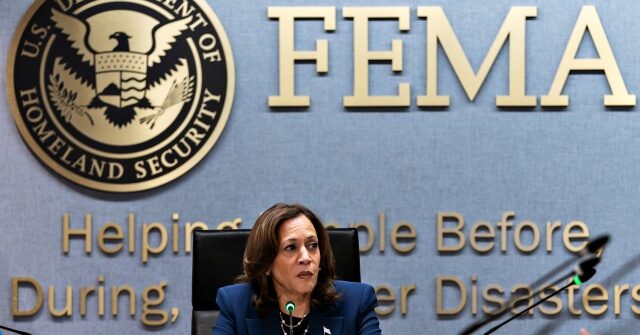House Homeland Security Committee Chairman Mark Green (R-TN) has publicly criticized President Joe Biden and Vice President Kamala Harris for allegedly prioritizing illegal immigrants over American citizens suffering from the devastating impacts of Hurricane Helene. With a death toll exceeding 220 across several states including North Carolina, Tennessee, and Kentucky, many Americans are grappling with the consequences of the hurricane, including power outages and inadequate access to essential supplies. In the aftermath of this disaster, Green’s remarks highlight a growing concern that the administration’s policies are misaligning federal resources during times of national crisis.
Adding to the controversy, Department of Homeland Security (DHS) Secretary Alejandro Mayorkas recently suggested that the Federal Emergency Management Agency (FEMA) may lack sufficient funding to adequately respond to the ongoing hurricane season. This statement comes against the backdrop of substantial allocations made by the Biden-Harris administration towards its Shelter and Services Program (SSP), which is designed to financially support sanctuary cities and NGOs involved in resettling migrants arriving at the Southern border. The juxtaposition of humanitarian support for migrants and the struggles of hurricane-affected Americans has intensified the scrutiny of the administration’s priorities.
Chairman Green labeled Mayorkas’s comments as indicative of a “completely backwards” perspective held by the Biden-Harris administration. He has asserted that the government appears to be favoring the interests of illegal immigrants over those of American citizens. Green has repeatedly criticized the administration for channeling large sums of taxpayer money into FEMA funding aimed at supporting illegal immigration policies, thus neglecting the needs of citizens facing the aftermath of natural disasters. He has pointed out that House Republicans previously sought to eliminate this type of spending in fiscal year 2024 appropriations, only to face resistance from the Democrat-controlled Senate and White House, which fought to restore it in the omnibus spending bill.
In further remarks, Green emphasized the starkness of the situation, reinforcing that the administration’s allocation of resources signifies an alarming trend. He underscored that while Secretary Mayorkas is seeking additional funds for disaster relief, the same officials have pushed for extensive financial support specifically earmarked for the Shelter and Services Program. He characterized these actions as a severe misallocation of priorities—where significant taxpayer dollars are being redirected to support undocumented immigrants at a time when American citizens are urgently in need of assistance following a catastrophic event.
Green’s criticisms encapsulate a broader narrative that suggests a fundamental disconnect between the administration’s policies and the urgent needs of American constituents in the wake of hurricanes and other crises. His assertion reflects a sentiment among certain political factions that the government is not adequately prioritizing the welfare of its citizens, raising questions about the adequacy and focus within federal disaster response mechanisms. The Chairman’s commentary serves to galvanize support among those who believe that immediate relief efforts should be the administration’s primary concern, rather than funding programs aimed at assisting immigrants.
In conclusion, the escalating tension and debate surrounding the appropriations for disaster relief versus immigrant support highlight a pivotal area of contention in American politics today. As the impact of Hurricane Helene continues to unfold and families face dire circumstances, the reactions from both sides of the political spectrum will likely shape future policy discussions and fiscal strategies related to disaster relief and immigration. The ongoing dialogues illustrate the challenges of governance in a complex socio-political landscape, where the needs of different constituencies must be balanced against the available resources and fiscal responsibility.

